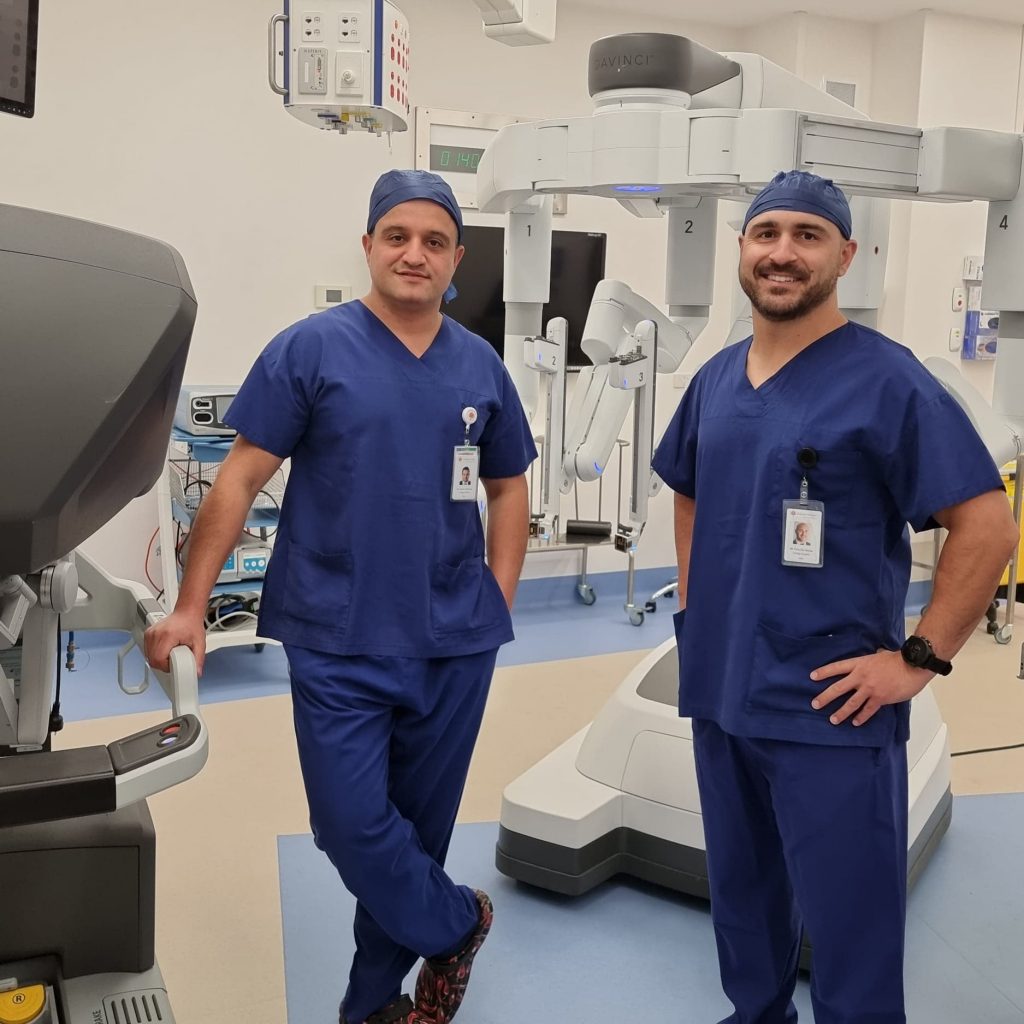Take a look at how kidney cancer is diagnosed, exploring the various methods and tests that we, as urologists use to make a diagnosis.
A diagnosis of kidney cancer can be a daunting prospect, but we believe that understanding the process of how kidney cancer is diagnosed can help ease anxiety and empower our patients to be involved in making informed decisions about their health.
In this blog, we will take a look at how kidney cancer is diagnosed, exploring the various methods and tests that we, as urologists use to make a diagnosis.

How kidney cancer is diagnosed: Could it be cancer?
It is worthwhile mentioning that most kidney cancers are discovered incidentally (by chance) when a person has an ultrasound or other imaging scan for an unrelated reason.
In cases where symptoms occur, they can include:
- Blood in the urine or change in the colour of the urine (appears dark, rusty or red)
- A lump in the abdomen
- Pain the lower back that is not related to injury
- Constant tiredness
- Unexplained weight loss
- Fever that is not caused by cold or flu.
These symptoms can also be caused by a number of other illnesses, so experiencing one or more of these does not necessarily mean that there is kidney cancer; the only way to definitely diagnose kidney cancer is by testing specifically for it.
If your urologist suspects that you may have an early or advanced kidney cancer, it may be recommended that you have some of the following tests.
How kidney cancer is diagnosed: Blood and urine tests
Whilst these tests don’t diagnose kidney cancer, they do check your general health and look for signs of problems with the kidneys. Blood and urine tests might also help to rule out certain conditions. Tests can include full blood cell counts (red cells, white cells and platelets) and tests to check how well the kidneys are functioning.
Urinalysis can detect the presence of blood or abnormal proteins in the urine, which may be signs of kidney cancer. Additionally, urine cytology may be performed to examine for cancer cells in the urine.
How kidney cancer is diagnosed: Imaging tests
To get a better look at the kidneys and surrounding areas, several imaging tests may be recommended by your urologist. These may include:
- Ultrasound: This test is non-invasive test. A handheld probe is used to direct high-frequency sound waves to create images of the kidneys. It can help detect tumours in and around the kidneys and provide an initial assessment of their size and location. Ultrasound is painless and usually takes around 15 minutes to complete.
- CT Scan (Computed Tomography): If a kidney cancer is suspected on an ultrasound, a CT scan may be recommended. A CT scan provides more detailed cross-sectional images of the kidneys and surrounding structures. It is especially useful in determining the size and extent of kidney tumours. It is painless and takes around 30-40 minutes. A CT scan can also be helpful in determining whether cancer has spread to nearby lymph nodes.
- MRI Scan (Magnetic Resonance Imaging): This type of scan uses magnetic fields and radio waves to produce highly detailed cross-sectional images of the kidneys. It can help assess the tumour’s location and whether it has spread to nearby lymph nodes or organs. It can take between 30-90 minutes.
- PET Scan (Positron Emission Tomography): PET scans use an injection of a small amount of radioactive solution that makes cancer cells show up brighter on the scan. This type of scan is useful for some cancers only.
How kidney cancer is diagnosed: Biopsy
Kidney biopsy is a definitive way to diagnose kidney cancer.
If your urologist suspects that there is a kidney cancer present, in some cases, they may recommend a kidney biopsy. During a biopsy, a small sample of tissue is removed from the kidney using a thin biopsy needle. This tissue is then examined under a microscope to confirm the presence of cancer and determine its type and aggressiveness. Kidney biopsies are typically performed under anaesthetic and guided by imaging techniques (such as ultrasound) to ensure precision and safety. This is not routinely required in all cases of kidney cancer.
How kidney cancer is diagnosed: Staging and Grading
Once a diagnosis of kidney cancer has been made, your urologist may order further testing in order to determine the stage and grade of the cancer. Staging assesses how far the cancer has spread, while grading evaluates how aggressive the cancer cells appear under a microscope. This information is important for preparing an appropriate treatment plan.
How kidney cancer is diagnosed: In Conclusion
When considering how kidney cancer is diagnosed, it is important to remember that the process involves a comprehensive approach that combines medical history, physical examination, imaging tests, biopsies, and laboratory analyses. Your urologist will be able to guide you through the diagnostic process and recommend which tests are appropriate for your circumstances.
By seeking prompt medical attention in symptomatic cases, patients can improve their chances of early detection and timely intervention.
